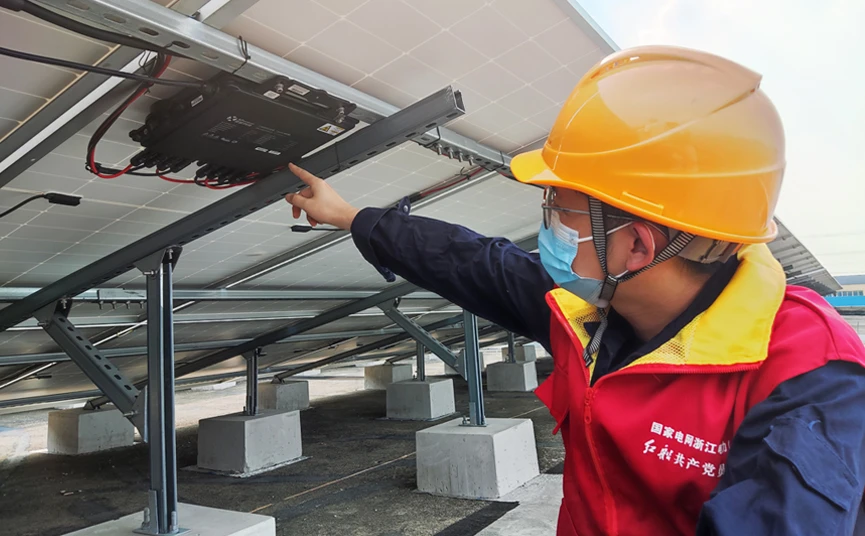hybrid inverter
Understanding Hybrid Inverters The Future of Energy Management
In recent years, the world has witnessed a significant shift toward renewable energy sources as a response to climate change and the finite nature of fossil fuels. Among various solutions available in the market, hybrid inverters have gained prominence for their ability to integrate multiple energy sources efficiently. This article delves into the functionalities, advantages, and applications of hybrid inverters, highlighting their role in shaping the future of energy management.
What is a Hybrid Inverter?
A hybrid inverter is a device that combines the functions of a traditional inverter and a charge controller, allowing it to accommodate both solar energy and grid power. It can manage energy from solar panels, battery storage systems, and the electrical grid simultaneously. This innovative technology facilitates a seamless transition between power sources, ensuring that users can maximize their energy use while minimizing reliance on non-renewable resources.
Key Features of Hybrid Inverters
1. Multiple Energy Sources Hybrid inverters can connect to various energy systems, including solar panels, wind turbines, and battery storage units. This versatility makes them an ideal choice for homeowners and businesses looking to harness renewable energy optimally.
2. Energy Storage Integration One of the standout features of hybrid inverters is their ability to work with battery storage systems. This means that users can store excess energy generated during the day and utilize it during peak hours or at night, ensuring a steady supply of electricity.
3. Grid Interaction Hybrid inverters can interface directly with the electrical grid. This allows users to sell excess electricity back to the grid (net metering), benefiting financially while supporting the broader energy ecosystem.
4. Smart Monitoring and Management Many modern hybrid inverters come equipped with intelligent monitoring systems, enabling users to track energy production and consumption in real time. This data allows for more informed decisions about energy use, optimizing efficiency and cost savings.
hybrid inverter

Advantages of Hybrid Inverters
1. Energy Independence By integrating renewable energy sources and energy storage, hybrid inverters offer a pathway to energy independence. Users can reduce their reliance on the grid and decrease their carbon footprint, contributing to environmental sustainability.
2. Cost Efficiency While the initial investment in solar panels and hybrid inverters may seem high, the long-term savings on electricity bills can be substantial. Utilizing stored energy during peak pricing hours allows users to take advantage of lower rates, ultimately resulting in lower overall energy costs.
3. Resilience and Backup Power Hybrid inverters provide an additional layer of reliability during power outages. By utilizing stored energy, users can keep essential appliances running even when the grid is down. This feature is particularly beneficial in areas prone to frequent blackouts.
4. Flexible Energy Management These inverters enable users to design their energy systems according to their specific needs. Whether it's adjusting the ratio of solar energy to grid energy or determining how much energy to store, hybrid inverters offer unparalleled flexibility.
Applications of Hybrid Inverters
Hybrid inverters can be implemented in various settings, including residential homes, commercial buildings, and even off-grid systems. In urban areas with limited space for solar panel installations, hybrid inverters allow users to maximize solar energy use while maintaining connection to the grid. In remote locations, these inverters can provide a reliable power source for essential services like healthcare, agriculture, and telecommunications.
Conclusion
As the demand for clean, sustainable energy solutions continues to rise, hybrid inverters stand out as a crucial component in the transition towards a greener future. Their ability to integrate various energy sources, provide energy storage, and deliver cost-effective solutions positions them as a key technology in energy management. Whether for residential or commercial purposes, hybrid inverters pave the way for a more resilient and efficient energy grid, ultimately empowering users to take control of their energy needs while contributing to a sustainable planet.
-
Understanding the Advantages of Solar String Inverters for Your Energy SystemNewsApr.29,2025
-
Choosing the Right PV Inverter: A Comprehensive GuideNewsApr.29,2025
-
The Future of Solar Power: Exploring Bifacial Solar PanelsNewsApr.29,2025
-
The Complete Guide to Solar Panels: Efficiency, Cost, And InstallationNewsApr.29,2025
-
The Best Options for Efficiency and Cost-EffectivenessNewsApr.29,2025
-
Harnessing the Power of Off-Grid Solar Inverters for Energy IndependenceNewsApr.29,2025







